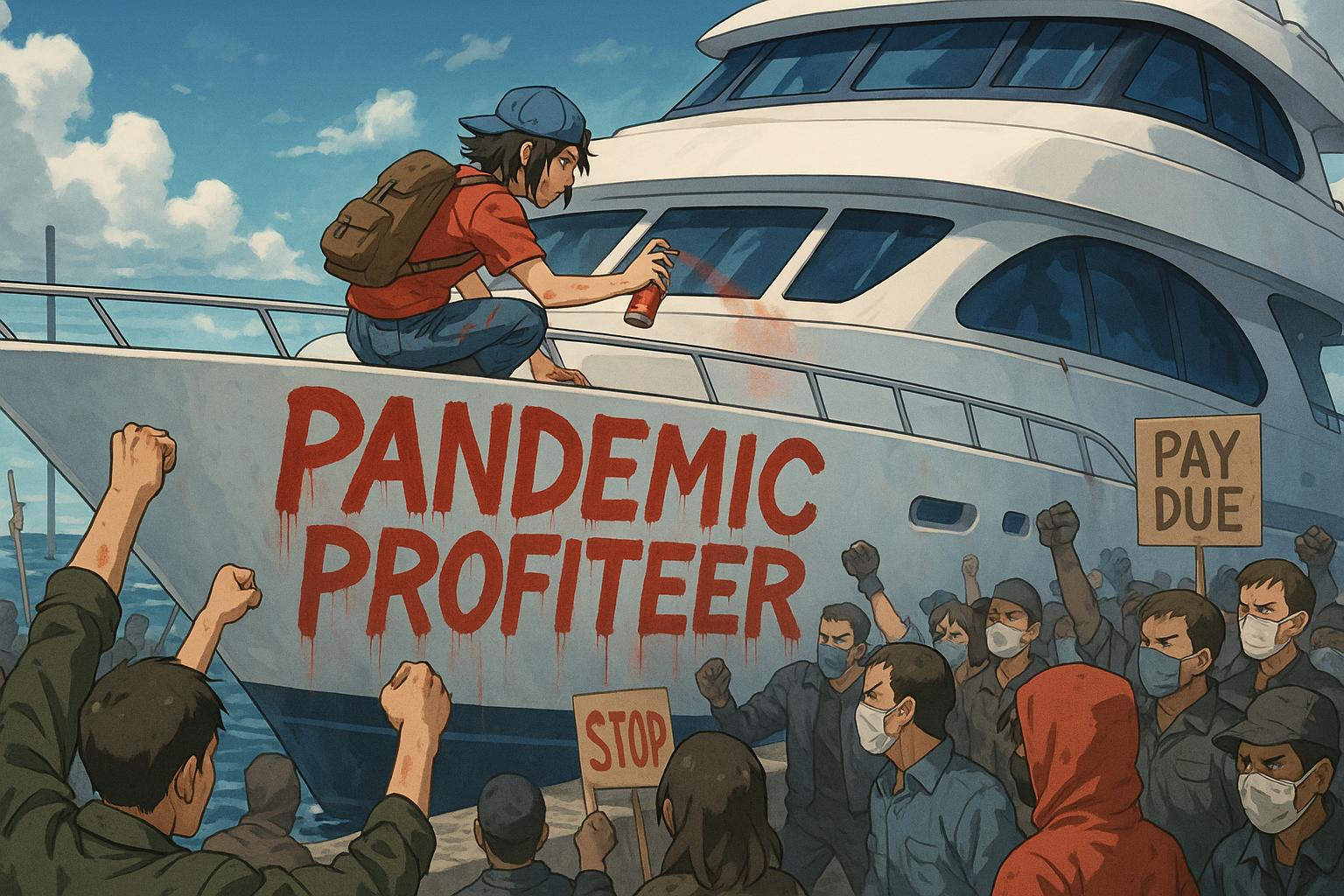At the recent Charleston literary festival, Ben Stewart and Oliver Knowles, members of the activist group Led By Donkeys, captivated the audience with an account of their audacious act of renaming Michelle Mone's luxurious yacht, Lady M, to “Pandemic Profiteer”. This creative protest was born from a desire to address the morally questionable profits made during the COVID-19 crisis, particularly those linked to government contracts awarded to Mone's company, PPE Medpro. Initially, Led By Donkeys had envisaged a more dramatic coup: seizing the yacht and sailing it back to the UK to turn it over to His Majesty’s Treasury, a gesture rich in symbolism and public defiance.
The narrative shared by Stewart and Knowles was not merely entertaining; it underscored a broader critique of pandemic profiteering. Mone, a Conservative peer, later faced scrutiny for her financial ties to the PPE contracts, initially denying any wrongdoing before ultimately admitting to a personal profit of £28.8 million. Much of this profit has been locked in a trust for her and her children. Her husband, Doug Barrowman, infamously remarked that benefiting from such circumstances is what happens when one is in a privileged position. This statement reflects a troubling ethos that many have come to associate with enterprise amid crisis.
The unfolding scandal has not merely remained a matter of financial impropriety but has also attracted significant legal weight. The National Crime Agency has frozen £75 million worth of Mone’s assets while pursuing an investigation, yet Mone maintains that she and her husband are scapegoats in a broader narrative about pandemic spending. This tension between accountability and deflection serves only to fuel public outrage, particularly among those who view her actions as emblematic of a larger rot in political and corporate ethics.
Led By Donkeys’ activism provides a stark reminder that public sentiment still craves accountability. Their installations, infused with poignant social commentary, resonate in a culture increasingly aware of the systemic inequalities exposed during the pandemic. For example, their action in 2024 in which children's outfits were laid out on Bournemouth beach to represent lives lost in Gaza, highlighted the devastating impact of conflict and the need for public engagement in discussions on justice. The mixing of these themes—of pandemic profiteering and global conflict—presents a complex narrative wherein personal misdeeds cannot be understood in isolation from wider socio-political contexts.
Stewart and Knowles received a standing ovation at the end of their talk, a heartfelt display of approval that suggests their message strikes a chord with a public weary of injustice. The applause was not merely an endorsement of their actions but a collective affirmation of the desire for change. In a time when the lines between moral outrage and political engagement are increasingly blurred, their work serves as both a call to action and a source of hope—reminding us that as communities, we must confront the emotional toll of misdeeds with resilience and creativity.
Such acts of protest are vital, as they remind society that it can collectively reject the status quo and declare what is permissible in the realm of ethics and accountability. Mone's case will likely remain a complex and ongoing saga, but the resonance of activist responses like those of Led By Donkeys suggests that public commitment to justice is far from diminished—it is evolving into a powerful form of expression and resistance.
Reference Map:
- Paragraph 1 – [1], [2]
- Paragraph 2 – [1], [3], [4]
- Paragraph 3 – [5], [6], [7]
- Paragraph 4 – [1], [6], [4]
- Paragraph 5 – [2], [4]
Source: Noah Wire Services
